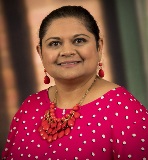The population of older adults is rapidly increasing in the US, and this demographic shift is expected to continue in the coming decades. According to the US Census Bureau, by 2030, all Baby Boomers will be older than 65, and older adults will represent 21% of the population. This demographic shift requires medical professionals with specialized training in caring for older adults.
As people age, they are more likely to have multiple chronic conditions, such as diabetes, heart disease, and dementia. Geriatricians are trained to manage these complex conditions and to help patients navigate the often-complicated treatment regimens.
Geriatric training is geared towards recognizing and addressing older patients' cognitive and functional decline. Treatments and therapies can be prescribed to help improve cognitive function and prevent further deterioration.
Geriatricians are also responsible for educating patients and their families about aging-related health issues and how to manage them. This may include providing information about medication management, fall prevention, and other strategies to promote healthy aging.
Overall, Geriatric medicine plays a vital role in the healthcare of older adults. It provides specialized care tailored to this population's unique needs, helping improve their quality of life and overall health outcomes.
The importance of Geriatric Medicine in the US is evident, given the rapidly increasing aging population, the unique health needs of older adults, and the critical role that geriatric care plays in improving the quality of life for older adults.
At Columbus Regional Health Geriatrics, we strive to treat the whole person and focus on the quality of life. If you would like to schedule a new patient appointment with our practice, please call WellConnect at 812-376-5136. Learn more at crh.org/geriatrics.
 Ritu Rohatgi, DO
Ritu Rohatgi, DOColumbus Regional Health Geriatrics
3581 Central Avenue
Columbus, IN 47203


